It’s a mad, mad, mad world
By Zoha Liaquat | Newsbeat International | Published 6 years ago
Of Walls and Cages
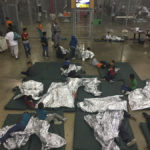 After vowing to build a wall on the US-Mexico border, President Donald Trump took his hardline stance on immigration a step further with the notoriously inhumane family separation policy. The ‘zero tolerance’ protocol announced by Attorney General Jeff Sessions in April 2018, led to the separation of over 2,000 children from their families at the US-Mexico border. As many as 20 children were made to share one small cage-like enclosure, and given foil sheets as blankets. Despite the presence of documented evidence of the separation of children lawfully presented at the border, Trump’s administration maintained that it had only separated children vulnerable to human trafficking. The policy was heavily criticised for mercilessly separating children from their families, and possibly leaving them with mental scars for life. Two months later, the policy was suspended after the president passed an executive order following immense political and public pressure. Many of the children who were separated, await reunion with their families, and several of those who were reunited failed to recognise their parents owing to months of separation.
After vowing to build a wall on the US-Mexico border, President Donald Trump took his hardline stance on immigration a step further with the notoriously inhumane family separation policy. The ‘zero tolerance’ protocol announced by Attorney General Jeff Sessions in April 2018, led to the separation of over 2,000 children from their families at the US-Mexico border. As many as 20 children were made to share one small cage-like enclosure, and given foil sheets as blankets. Despite the presence of documented evidence of the separation of children lawfully presented at the border, Trump’s administration maintained that it had only separated children vulnerable to human trafficking. The policy was heavily criticised for mercilessly separating children from their families, and possibly leaving them with mental scars for life. Two months later, the policy was suspended after the president passed an executive order following immense political and public pressure. Many of the children who were separated, await reunion with their families, and several of those who were reunited failed to recognise their parents owing to months of separation.
Re-Writing History
On September 6, in a landmark ruling India’s highest court decriminalised homosexuality, striking down the 150-year-old colonial era law that declared same sex relationships an “unnatural offence.” Hundreds gathered outside the Supreme Court building in New Delhi erupted into loud cheers, as news of the verdict reached them. A major milestone for the country’s LGBTQ community, who face widespread discrimination on the basis of their sexual orientation, the decision garnered praise from people around the globe. Celebrations were held in public and private spaces throughout India as congratulatory messages poured in from the world over.
Unapologetically Black
 Millions around the world tuned into British TV channels to witness Prince Harry and American starlet, Meghan Markle, tie the knot in what was no less than a fairytale wedding. Markle, the first person of colour to be married into the British royal family, paid homage to her African heritage by wearing a veil that featured flowers from all the Commonwealth countries. The highly anticipated wedding saw some unapologetically black moments, most notable of which was the all-black Kingdom Choir singing Ben E. King’s popular love ballad, ‘Stand by Me’ – a rallying cry against racial injustice during the American Civil Rights Movement – before the British Monarchy, arguably the world’s most notable and celebrated symbol of whiteness.
Millions around the world tuned into British TV channels to witness Prince Harry and American starlet, Meghan Markle, tie the knot in what was no less than a fairytale wedding. Markle, the first person of colour to be married into the British royal family, paid homage to her African heritage by wearing a veil that featured flowers from all the Commonwealth countries. The highly anticipated wedding saw some unapologetically black moments, most notable of which was the all-black Kingdom Choir singing Ben E. King’s popular love ballad, ‘Stand by Me’ – a rallying cry against racial injustice during the American Civil Rights Movement – before the British Monarchy, arguably the world’s most notable and celebrated symbol of whiteness.
Crown and Daggers
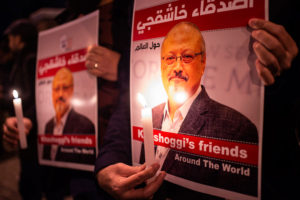 On October 2, prominent Saudi journalist, Jamal Khashoggi, was brutally murdered inside the Saudi consulate in Istanbul. A close ally of the Saudi Royal crown for decades, and once an adviser to the government, Khashoggi settled in the United States following differences with the royal family and wrote a monthly column for
On October 2, prominent Saudi journalist, Jamal Khashoggi, was brutally murdered inside the Saudi consulate in Istanbul. A close ally of the Saudi Royal crown for decades, and once an adviser to the government, Khashoggi settled in the United States following differences with the royal family and wrote a monthly column for
The Washington Post, criticising the policies of Saudi Crown Prince, Muhammed bin Salman. For more than two weeks after his murder, the Saudi government denied any involvement in the incident. However, on October 20, when Turkish state television reported that the journalist had, in fact, died inside the consulate following a brawl, Saudi authorities soon changed their stance and declared that Khashoggi had been murdered during a ‘rogue operation,’ promising to punish those responsible. On October 25, after continuing back and forth in the state’s explanation, the Saudi prosecutor confirmed that information received from Turkish investigations indicated that Khashoggi’s murder was ‘premeditated.’ The investigators claimed he was given a lethal injection following a struggle, after which his body was mutilated and the parts handed over to a local ‘collaborator’ to be disposed of. On November 15, the Saudi public prosecutor concluded that an intelligence officer had ordered Khashoggi’s killing; he charged 11 people with murder, seeking the death penalty for five of them. Interestingly, the Crown Prince was totally absolved of the deed.
Perpetual President
In a widely expected win, Vladimir Putin secured a fourth presidential term after his victory in Russia’s general elections. With 77.6 per cent votes – a career best for the Russian premier – Putin, set for another six years in power, is Russia’s longest serving president since Soviet Revolutionary, Joseph Stalin.
New Day on the Horizon
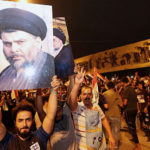 Memories of war loomed in the background as Iraqi citizens headed to the polls to elect a new parliament, in the country’s first elections since the fall of IS. Mosul, the city less-damaged by the war, saw its roads lined with hundreds of colourful election banners. In a surprising turn of events, former Prime Minister Haider-al-Abadi secured third place in the elections, and firebrand religious leader Muqtada-al-Sadr’s party emerged victorious.
Memories of war loomed in the background as Iraqi citizens headed to the polls to elect a new parliament, in the country’s first elections since the fall of IS. Mosul, the city less-damaged by the war, saw its roads lined with hundreds of colourful election banners. In a surprising turn of events, former Prime Minister Haider-al-Abadi secured third place in the elections, and firebrand religious leader Muqtada-al-Sadr’s party emerged victorious.
Cracking the Glass Ceiling
The United States’ mid-term elections, generally perceived as a referendum on the incumbent administration, saw a large voter turnout and some historic wins for the left. The Democratic Party made significant gains and won control of the House of Representatives while Republicans retained their majority in the Senate. Cracks in the glass ceiling grew bigger as more women were elected than at any time in US history. Alexandria Ocasio-Cortez, 29, became the youngest woman to be elected to Congress. Ayanna Pressley made her mark as the first black woman elected from the state of Massachusetts. Rashida Tlaib of Michigan and Ilhan Omar from Minnesota became the first elected Muslim women. Deb Halaand of New Mexico and Sharice Davids of Kansas were the first Native American women in Congress. The states of Maine, Guam and South Dakota elected their first female governors. Veronica Escobar and Sylvia Garcia became the first Hispanic Congresswomen to be elected from Texas. The state of Colorado made history by electing the country’s first openly gay Governor, Jared Polis.
End of the Castro Era
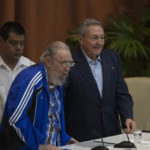 Raul Castro stepped down as president, ending the Castro family’s six-decade run of Cuba. Raul helped his brother, Fidel, lead the Communist nation before becoming president himself. Quiet and reserved, Raul was happy to take a backseat to his older brother, but fought alongside Fidel and ran the country’s armed forces for five decades. Raul will continue to head the armed forces and the Communist Party – two of the island nation’s most important institutions.
Raul Castro stepped down as president, ending the Castro family’s six-decade run of Cuba. Raul helped his brother, Fidel, lead the Communist nation before becoming president himself. Quiet and reserved, Raul was happy to take a backseat to his older brother, but fought alongside Fidel and ran the country’s armed forces for five decades. Raul will continue to head the armed forces and the Communist Party – two of the island nation’s most important institutions.
In a Chemical Attack
On April 7, 70 people were killed in the Syrian city of Douma, the last rebel-held town in Eastern Ghouta. Rebel forces in Douma, medics on the ground, international NGOs, NATO and several other countries all attributed the attack to the Syrian army, backed by Bashar-al-Assad’s regime, an accusation vehemently denied by the Syrian defence ministry. The United States, the United Kingdom and France launched multiple air strikes on army camps and various government sites in Syria in response to the attack.
365 Days of Attack
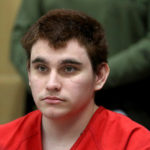 The United States witnessed some of its deadliest mass shootings through the course of the year. On February 14, a former student opened fire at the Marjory Stoneman Douglas High School in Parkland, Florida, killing 17 people and leaving 17 wounded. On March 24, students from the school led a demonstration demanding the implementation of stronger gun violence prevention measures. Named the ‘March for Our Lives,’ the demonstration saw an estimated two million people walk in protest throughout the United States, making it one of the largest recorded protests in the country’s history. But the horror of the mass shootings was far from over; on May 18, 17-year-old Dimitrios Pagourtzis allegedly unleashed a hail of bullets in an art class at the Santa Fe High School in Texas. Eight students and two teachers were killed, and the alleged perpetrator was arrested on charges of murder and aggravated assault; and on November 7, 12 people were killed by a lone shooter at the Borderline Bar and Grill in Thousand Oaks, California.
The United States witnessed some of its deadliest mass shootings through the course of the year. On February 14, a former student opened fire at the Marjory Stoneman Douglas High School in Parkland, Florida, killing 17 people and leaving 17 wounded. On March 24, students from the school led a demonstration demanding the implementation of stronger gun violence prevention measures. Named the ‘March for Our Lives,’ the demonstration saw an estimated two million people walk in protest throughout the United States, making it one of the largest recorded protests in the country’s history. But the horror of the mass shootings was far from over; on May 18, 17-year-old Dimitrios Pagourtzis allegedly unleashed a hail of bullets in an art class at the Santa Fe High School in Texas. Eight students and two teachers were killed, and the alleged perpetrator was arrested on charges of murder and aggravated assault; and on November 7, 12 people were killed by a lone shooter at the Borderline Bar and Grill in Thousand Oaks, California.
Reclaiming Agency
I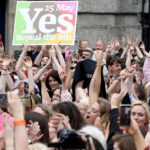 reland voted by a landslide to repeal the Emerald Isle’s near-total ban on abortions. One of the strictest abortion laws in Europe, dating back to 1983, it guaranteed constitutional protection for the life of a pre-born baby, making it virtually impossible for women to seek abortions – even in cases of conception after rape. Denied the right to reproductive agency for decades, women and male allies stepped out in large numbers to vote in the referendum held to decide whether to repeal the ban; 66.4 per cent of the people voted in favour, while 33.6 per cent voted against it.
reland voted by a landslide to repeal the Emerald Isle’s near-total ban on abortions. One of the strictest abortion laws in Europe, dating back to 1983, it guaranteed constitutional protection for the life of a pre-born baby, making it virtually impossible for women to seek abortions – even in cases of conception after rape. Denied the right to reproductive agency for decades, women and male allies stepped out in large numbers to vote in the referendum held to decide whether to repeal the ban; 66.4 per cent of the people voted in favour, while 33.6 per cent voted against it.
Guardedly Progressive
In a surprising move, Saudi Arabia decided this year that it was okay for women to drive, and for people to go to the cinema. The deeply conservation Muslim Kingdom repealed its ban on female drivers, and saw the opening of its first cinema in decades. The ban on female driving had for long been criticised by the country’s western allies, and was often likened to life under the Taliban rule in Afghanistan. However, the lifting of the ban was accompanied by a quirky and illogical move: state authorities imprisoned a number of female activists who had campaigned for the repeal.
Ignorance is Bliss
In March 2018, Facebook CEO Mark Zuckerberg agreed to testify before the United States Senate following a two-year long scandal that sparked controversy over data privacy, and cost Facebook a $100 billion loss in stock prices. The British political firm, Cambridge Analytica, reportedly harvested the personal data of millions of Facebook-users for political purposes, without their consent. Zuckerberg was expected to be faced with a hard line of questioning, but he emerged unscathed from the Senate Committee hearing, following the Senators’ general lack of understanding of social media and the Facebook model. US lawmakers, evidently unaware about the workings of 21st century technology, asked Zuckerberg questions regarding the Facebook business model, but failed to hold the tech giant accountable for his company’s inability to secure user data. Zuckerberg’s win in the situation was evident when Senators asked if he would like a break, to which the young billionaire replied, “We can do a few more.”
March 2018, Facebook CEO Mark Zuckerberg agreed to testify before the United States Senate following a two-year long scandal that sparked controversy over data privacy, and cost Facebook a $100 billion loss in stock prices. The British political firm, Cambridge Analytica, reportedly harvested the personal data of millions of Facebook-users for political purposes, without their consent. Zuckerberg was expected to be faced with a hard line of questioning, but he emerged unscathed from the Senate Committee hearing, following the Senators’ general lack of understanding of social media and the Facebook model. US lawmakers, evidently unaware about the workings of 21st century technology, asked Zuckerberg questions regarding the Facebook business model, but failed to hold the tech giant accountable for his company’s inability to secure user data. Zuckerberg’s win in the situation was evident when Senators asked if he would like a break, to which the young billionaire replied, “We can do a few more.”
Delayed Closure
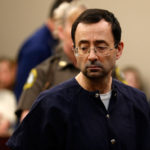 2018 saw the shakedown of some powerful men on account of sexual assault. USA gymnastics national team doctor, Larry Nassar, was sentenced to 60 years after he pleaded guilty to charges of child pornography; he was given an additional 40 to 175 years in prison on account of sexual assault of seven minors. Nassar, accused of molesting over 250 young girls during his time as a gymnastics doctor, stood in court as all of his victims read aloud their testimonies, detailing the physical and psychological trauma he had caused them. On July 18, more than 150 of Nassar’s victims were honoured with the Arthur Ashe Award for Courage at the ESPY Award ceremony.
2018 saw the shakedown of some powerful men on account of sexual assault. USA gymnastics national team doctor, Larry Nassar, was sentenced to 60 years after he pleaded guilty to charges of child pornography; he was given an additional 40 to 175 years in prison on account of sexual assault of seven minors. Nassar, accused of molesting over 250 young girls during his time as a gymnastics doctor, stood in court as all of his victims read aloud their testimonies, detailing the physical and psychological trauma he had caused them. On July 18, more than 150 of Nassar’s victims were honoured with the Arthur Ashe Award for Courage at the ESPY Award ceremony.
Selling Activism
To celebrate the 30th anniversary of its famous slogan, “Just do it,” sportswear giant Nike named NFL player Colin Kaepernick as the new face of the brand. Kaepernick had (in)famously sparked controversy when he took a knee during the playing of the United States’ national anthem before a pre-season game in San Diego, to protest racism and police brutality in the country. Since his contract expired in 2016, the player has not been signed by another NFL team. Nike, lauded for embracing an openly political figure, came under fire for commercialising Kaepernick’s activism for monetary gain. The sportswear company reportedly made over $6 billion since the ad’s initial release.
Vested Interests
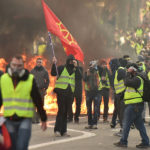 Anti-elite sentiment took centre-stage in France’s fast-growing yellow vest movement. For four consecutive weekends, thousands of protestors clad in high visibility jackets – adopted as a symbol of resistance – took to the streets, burned effigies and clashed with the police in protest against rising fuel prices, low salaries, the unimaginably high cost of living in France and the unequal distribution of wealth in the country. Some protestors went so far as to demand the president’s resignation – often criticised as the “president of the rich” – refusing to settle for anything less. President Emanuel Macron, who lay low during the movement, spoke to the nation in a televised address following the fourth weekend of the protests. The young president condemned the continuing violence but validated the protestors’ concerns, calling them “deep and in many ways legitimate.” The president promised to increase the minimum wage by €100 per month, and cancelled the planned tax increase on low-income pensioners, but refused to reinstate tax on the wealthy.
Anti-elite sentiment took centre-stage in France’s fast-growing yellow vest movement. For four consecutive weekends, thousands of protestors clad in high visibility jackets – adopted as a symbol of resistance – took to the streets, burned effigies and clashed with the police in protest against rising fuel prices, low salaries, the unimaginably high cost of living in France and the unequal distribution of wealth in the country. Some protestors went so far as to demand the president’s resignation – often criticised as the “president of the rich” – refusing to settle for anything less. President Emanuel Macron, who lay low during the movement, spoke to the nation in a televised address following the fourth weekend of the protests. The young president condemned the continuing violence but validated the protestors’ concerns, calling them “deep and in many ways legitimate.” The president promised to increase the minimum wage by €100 per month, and cancelled the planned tax increase on low-income pensioners, but refused to reinstate tax on the wealthy.
When the Rains Came
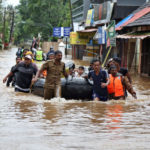 The beginning of May 2018 saw unusually high levels of rain through the state of Kerala, resulting in one of the worst environmental disasters in the state in almost a century. The worsening situation wrought death and destruction – 483 people died, 15 went missing and almost a million were required to evacuate. Declared a “level 3 calamity,” by the state government, the floods directly affected nearly one-sixth of Kerala’s population. Of the state’s 54 dams, 35 were opened for the first time in history, and the losses incurred – both personal and material – were unprecedented. Reports suggest that rampant stone quarrying, the cutting down of grasslands, digging of pits and the change in drainage patterns, worsened the landslides and landslips, which added to the overall destruction caused by the floods.
The beginning of May 2018 saw unusually high levels of rain through the state of Kerala, resulting in one of the worst environmental disasters in the state in almost a century. The worsening situation wrought death and destruction – 483 people died, 15 went missing and almost a million were required to evacuate. Declared a “level 3 calamity,” by the state government, the floods directly affected nearly one-sixth of Kerala’s population. Of the state’s 54 dams, 35 were opened for the first time in history, and the losses incurred – both personal and material – were unprecedented. Reports suggest that rampant stone quarrying, the cutting down of grasslands, digging of pits and the change in drainage patterns, worsened the landslides and landslips, which added to the overall destruction caused by the floods.
Blanket of Fire
2018 brought damage, destruction and death to California, in what were recorded as the deadliest wildfires to ravage the state. Costing over $2 billion in damages, and $1.36 billion in fire suspension costs, the monetary loss incurred was also one of the biggest during wildfire season. July and August saw a series of fires erupt through the northern part of California, and by November, 97 civilians and six firefighters had died, and over 18,000 structures had been destroyed. The coast of Malibu, home to some of Hollywood’s biggest names, saw celebrities hire their personal firefighters to help reduce the damage in their wealthy neighbourhoods. A research published by the University of California, Berkeley, has attributed the increase in the number of wildfires, to climate change.
Moment of Miracle
Twelve members of a junior football team, aged between 11 to 17, along with their assistant coach, were rescued from inside a flooded cave in Thailand, after an 18-day-long mission that gained worldwide attention. The boys, reported missing after a concerned mother called the police when her son didn’t return from practice, were confirmed to be inside the cave after authorities found shoes and bicycles abandoned at its entrance. The search operation involved 10,000 people, including 2,000 soldiers, 900 police officers, 100 divers and representatives from over a 100 governmental agencies; 10 police helicopters, seven police ambulances and 700 diving cylinders. Diving experts from various countries, including the United States, Australia, Canada, China and Japan, flew in to help get the boys to safety.
‘Insight” into Mars
 On November 26, NASA’s unmanned spacecraft, InSight (Interior Exploration through Seismic Investigations, Geodesy and Heat Transport), touched down on Mars – a planet that has intrigued scientists for decades. The probe, that took seven years to develop, travelled 300 million miles through space over a period of 205 days before its historic landing on the Red Planet. Hours after its successful landing, the rover sent a picture of the barren martian terrain of the planet. InSight, the first mission to explore the interior of Mars, will spend its initial weeks setting up the equipment before it can begin drilling into the planet’s crust, to assess its temperature. Landing in a spot called Elysium Planitia, a relatively flat land in the planet’s otherwise uneven landscape, the lander is expected to help scientists understand the formation of all rocky planets, including Earth.
On November 26, NASA’s unmanned spacecraft, InSight (Interior Exploration through Seismic Investigations, Geodesy and Heat Transport), touched down on Mars – a planet that has intrigued scientists for decades. The probe, that took seven years to develop, travelled 300 million miles through space over a period of 205 days before its historic landing on the Red Planet. Hours after its successful landing, the rover sent a picture of the barren martian terrain of the planet. InSight, the first mission to explore the interior of Mars, will spend its initial weeks setting up the equipment before it can begin drilling into the planet’s crust, to assess its temperature. Landing in a spot called Elysium Planitia, a relatively flat land in the planet’s otherwise uneven landscape, the lander is expected to help scientists understand the formation of all rocky planets, including Earth.
Murder on the Frontlines
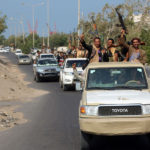 round of UN-sponsored talks resulted in the passing of a watered-down resolution calling for a ceasefire in Yemen’s city of Al Hudaydah. The resolution came after intensified international pressure, following the continued deterioration of the humanitarian crisis. The UN had projected a death toll of over 250, 000 if the fight in Al Hudaydah – an important route for aid distribution throughout the country – continued. Since the outbreak of the war in 2014, 85,000 children have died and 14 million Yemeni citizens continue to be plagued by the possibility of starvation, in what the United Nations calls, “the worst famine in the world in 100 years.” A day after the ceasefire, a report published by the Associated Press revealed harrowing details about children as young as 10 fighting on the frontlines, alongside Houthi rebels. The rebels target vulnerable children from remote parts of the country, often sending them to battle in exchange for money. The actual toll of juvenile deaths on the battlefield remains unknown.
round of UN-sponsored talks resulted in the passing of a watered-down resolution calling for a ceasefire in Yemen’s city of Al Hudaydah. The resolution came after intensified international pressure, following the continued deterioration of the humanitarian crisis. The UN had projected a death toll of over 250, 000 if the fight in Al Hudaydah – an important route for aid distribution throughout the country – continued. Since the outbreak of the war in 2014, 85,000 children have died and 14 million Yemeni citizens continue to be plagued by the possibility of starvation, in what the United Nations calls, “the worst famine in the world in 100 years.” A day after the ceasefire, a report published by the Associated Press revealed harrowing details about children as young as 10 fighting on the frontlines, alongside Houthi rebels. The rebels target vulnerable children from remote parts of the country, often sending them to battle in exchange for money. The actual toll of juvenile deaths on the battlefield remains unknown.
Falling from Grace
This year the #MeToo movement found its way to India after former Bollywood actress, Tanushree Dutta, levelled allegations of sexual harassment against ace actor Nana Patekar. Dutta’s claims opened the floodgates for harassment stories from all corners of the country, bringing some of India’s most powerful men to their knees. Renowned journalist, and former Minister of State for External Affairs, M.J. Akbar stepped down from office after multiple women came forward with charges of sexual assault; the most serious of which was a rape allegation leveled by Pallavi Gogoi – chief business head of the National Public Radio in the United States – who had worked with Akbar at Asian
Age. Veteran television and film actor Alok Nath, directors Sajid Khan and Vikas Bahl and singer Anu Malik, were among other notable names who came under fire for their past indiscretions. Although the movement did not take off as strongly in Pakistan, singer Meesha Shafi’s public allegations of sexual misconduct against Ali Zafar propelled it forward in the country.
Back to the Beginning
A fifty-one-day long power struggle in Sri Lanka ended with the reinstating of ousted Prime Minister Ranil Wickremesinghe. Wickremesinghe’s dismissal by President Maithripala Sirisena, in October, had paralysed the island nation and left it in a state of crisis. The Prime Minister had maintained that his dismissal was illegal, a view supported by the parliament. The two men, at loggerheads, continued to claim leadership, leaving the country with no functioning government. Sirisena, refusing to bow down to pressure for over two months, swore Wickremesinghe back in government in a closed-door ceremony on December 16.
A journalism graduate, Zoha's core areas of interest include human and gender rights issues, alongside which she also writes about gender representation in the media and its impact on society.


